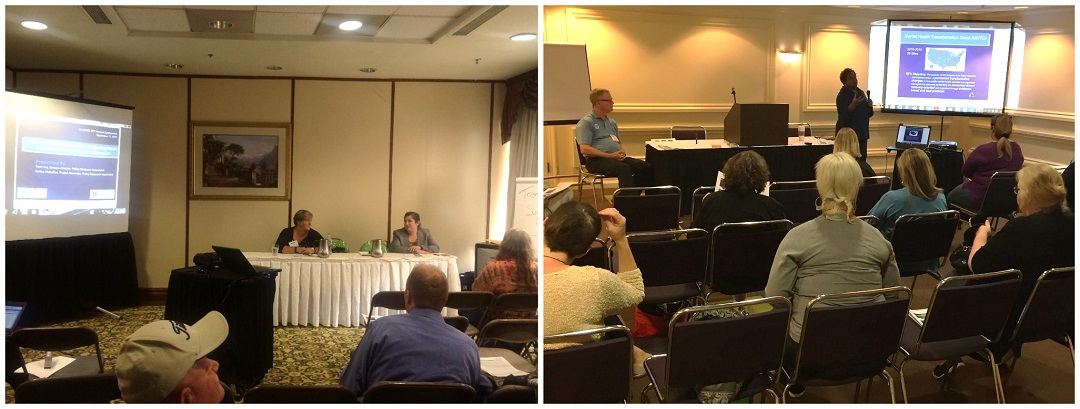As part of the GAINS Center at Policy Research Associates for the last few years, I have been able to help provide technical assistance to SAMHSA’s Mental Health Transformation Grant (MHTG), which supported 20 grantees across the country for the last 5 years. One of the main successes of the MHTG program has been peer integration at every level: in grant planning, service delivery and implementation, and evaluation. As the grant came to a close, we brainstormed about how to publicize this success and spread the word about best practices.
As part of the grant wrap-up last summer, we recorded video interviews with nine peer staff from seven of the MHTG sites in order to hear their perspectives and experiences as part of the program. Clips from the video interviews were then used as the foundation of a presentation focused on successful strategies for fully integrating peers in systems and services transformation. Terri Hay, LaVerne Miller, and I facilitated the presentation at three conferences between September and December 2015: the New York Association of Psychiatric Rehabilitation Services, Inc. (NYAPRS) Annual Conference, the Alternatives Conference in Tennessee, and a local housing provider conference in New Mexico. At two of the conferences, some of the MHTG peer staff featured in the video clips were also able to co-presents in person.
Following the process, Senior Project Associate LaVerne Miller said, “The presentation was a mixture of live facilitation and video clips that captured the strong commitment that peers working across the various Mental Health Transformation Projects have to leave a lasting legacy for future generations of peers working to transform systems. The main message of the video is that peers are ready, willing and able to take leadership roles in transforming how services are delivered and who delivers them. The clips also demonstrate the “pioneering” spirit of peers.”
Some of the specific successes of peer integration within the MHTG included:
- The development of Planning Committees/Governing Councils with up to 100% peer/family member representation
- Peer staff serving as Program Directors, Wellness Coaches, Employment Specialists, Group Facilitators, and much more
- Peers creating innovative programming such as an Alumni Support Group for individuals who have completed the Seeking Safety program and developing new products such as toolkits and guidebooks
- Peers selecting recovery evaluation instruments, participating in data collection, management and fidelity reviews
You can view clips from the interviews below to hear more about how peers were integrated into all levels of the MHTG.
Every MHTG site began at a different place, but all achieved exciting success. Click this link to hear some of the peers’ responses regarding taking peer integration to the next level.


